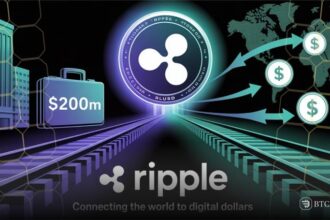Ripple recently entered into partnerships with the UAE’s Zand Bank and financial services platform Mamo to expand its services in the region.
Ripple recently secured a license from the Dubai Financial Services Authority (DFSA) to operate under local regulations. Its new partnerships reflect ongoing efforts to strengthen its global footprint, particularly in the Middle East.
Ripple’s payment network is active in more than 90 markets worldwide and processes more than $70 billion in annual volume. These figures demonstrate Ripple’s increasing role in making cross-border payments faster, end-to-end, and cheaper to process.
With Mamo and Zand Bank adopting Ripple’s blockchain, international payments in the UAE will become more secure and traceable for both consumers and businesses.
Zand Bank is planning to develop a UAE Dirham-backed stablecoin that will further quicken local settlements. A blockchain system integrated into the stablecoin infrastructure will enable smooth financial transactions throughout the growing digital economy within the country.
Ripple gains DFSA license for expansion
Ripple’s Middle East and Africa Managing Director Reece Merrick said that the license from DFSA allows Ripple to enhance transaction flows in this rapidly developing market.
The new partnerships demonstrate increasing interest among UAE businesses to embrace technologies that enable secure, real-time, and cost-effective cross-border payments.
Zand and Mamo are among the first regional firms that have joined Ripple’s vision in transforming global payments using blockchain. Ripple’s own internal research indicated that 64 percent of financial decision-makers in the Middle East consider speed more important than all else.
That demand is one reason that institutions in the UAE turn to blockchain solutions to modernize their antiquated payment networks. With their access to Ripple, Mamo, and Zand hope to serve crypto-native firms as well as traditional banks looking for more efficiency.
Co-founder and CEO Imad Gharazeddine of Mamo recognized the UAE’s favorable regulatory framework that promotes innovation and growth in digital finance. Such conditions are pulling in additional global companies and making the UAE a hub for blockchain-powered financial services in the future.







